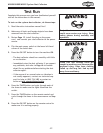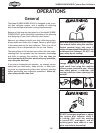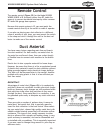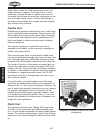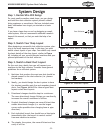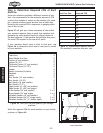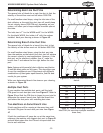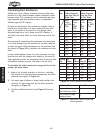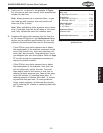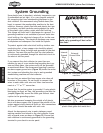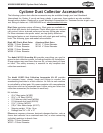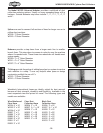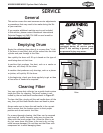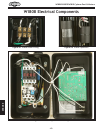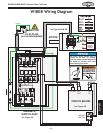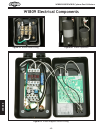
-35-
W1808/W1809/W1810 Cyclone Dust Collectors
OPERATIONS
4. Total your list, as shown in the example in Figure
54, to come up with your overall static pressure loss
number for that line.
Note: Always account for a seasoned filter, so you
don't end up with a system that only works well
when the filter is clean.
Note
: When calculating static pressure loss to deter-
mine if multiple lines can be left open at the same
time, only include the main line numbers once.
5. Compare the total static pressure loss for that line
to the closest CFM given in the Performance Curve
section on the machine specifications for your dust
collector (located toward the front of this manual).
— If the CFM for your static pressure loss is above
the requirement of the machine connected to the
end of that branch line, then dust collection will
most likely be successful. Congratulations! You've
just designed your own dust system. Refer to
Page
37 to start buying the components necessary to
make your system a reality.
— If the CFM for your static pressure loss is below
the requirement of the machine, then that line
will not effectively collect the dust. You must
then modify some of the factors in that line to
reduce the static pressure loss. Some of the ways
to do this include: 1) Installing larger duct, 2)
reducing amount of flexible duct used, 3) increas
-
ing machine dust port size, 4) moving machine
closer to dust collector to eliminate duct length,
and 5) reducing 90˚ elbows or replacing them with
45˚ elbows.
Figure 54. Example list for totaling static
pressure loss.



